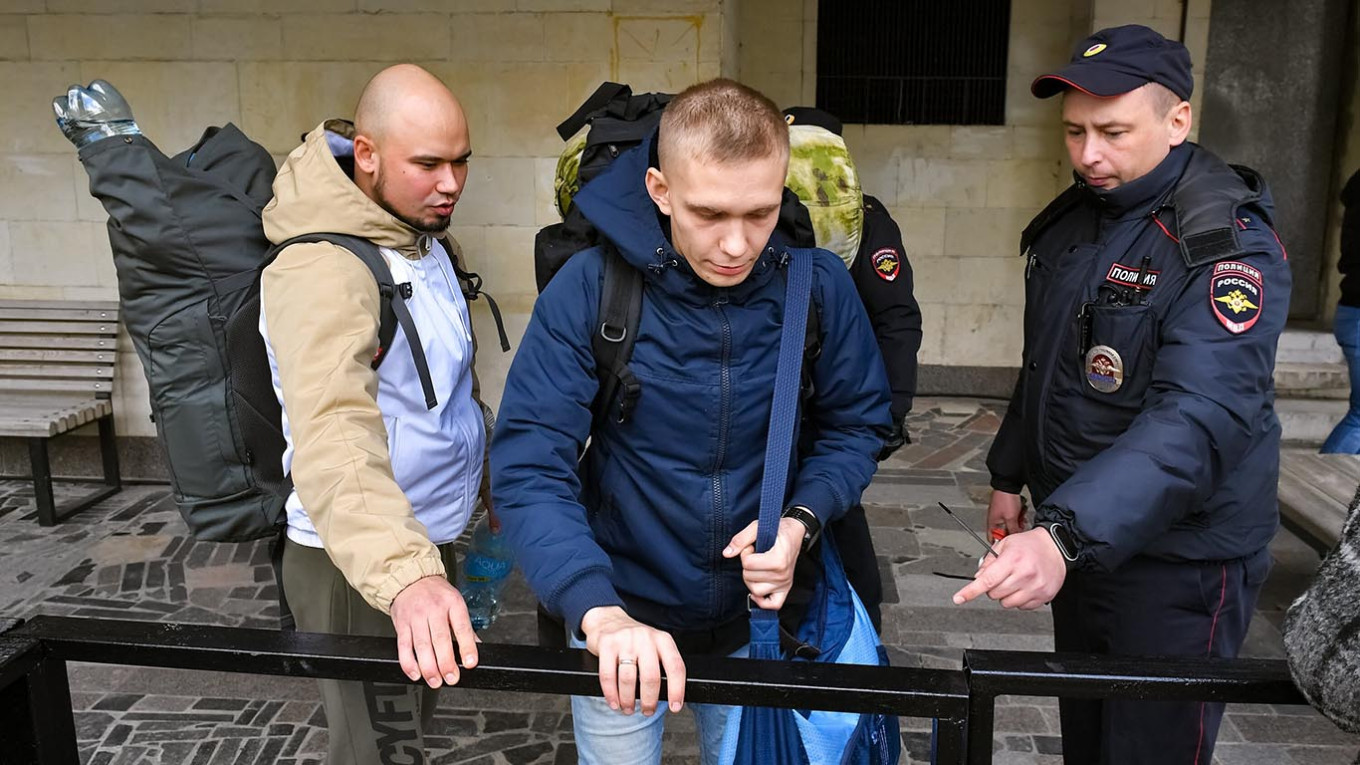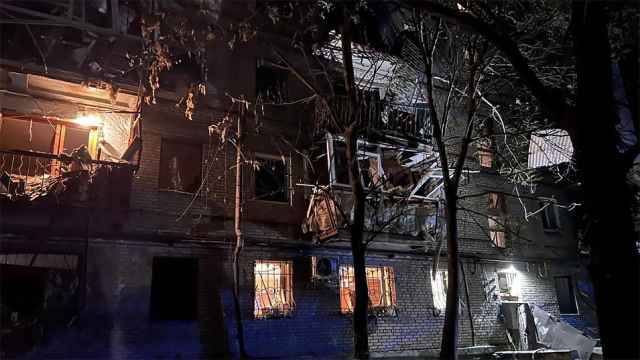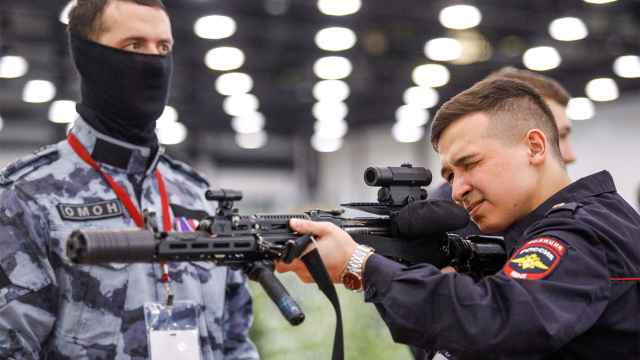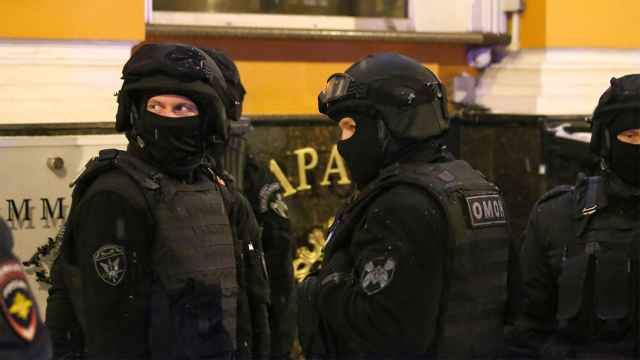Russian police officers are being offered cash bonuses for each detainee they recruit to fight in Ukraine, the exiled news outlet Vyorstka reported Thursday.
The bonuses, ranging from 10,000 to 100,000 rubles ($130-1,300) per recruit depending on the region, were introduced after Russia started requiring officers to inform detainees between ages 18 and 65 that enlisting in the military could allow them to avoid prosecution, Vyorstka’s sources in the police said.
In many cases, the recruitment pitch to detainees happens before the first interrogation, an officer in the southern Krasnodar region told Vyorstka.
According to this officer, suspects are promised full legal amnesty, salaries of over 200,000 rubles ($2,570) per month, family benefits and free education for their children.
Once a detainee agrees to sign a military contract, the case is referred to a local enlistment office. If the contract is signed, legal proceedings are suspended, pre-trial detention is lifted and the criminal prosecution is halted.
Investigators in St. Petersburg, whose ordinary monthly salaries range from 40,000 to 60,000 rubles ($510-770), can earn an additional 35,000 rubles ($450) per recruit sent to the front, a recently dismissed police officer told Vyorstka.
“In fact, an investigator can double their salary by recruiting just two people a month,” the former officer said.
Another source said that these bonuses have increased since the beginning of the year.
In St. Petersburg, the reward is now 50,000 rubles ($640); in the wider Leningrad region, it is 100,000 rubles ($1,280).
In Moscow, officers receive 50,000 rubles ($640) per detainee recruited, with the payment coming from a combination of city funding and money from an unnamed private entity.
In the Kaluga region, the bonus rose from 10,000 to 60,000 rubles ($130-$770) in 2024, a district officer told Vyorstka. In the Bryansk region, where officer salaries start at 38,000 rubles ($490), the recruitment bonus is 20,000 to 30,000 rubles ($260-390).
According to Interior Ministry data reviewed by Vyorstka, 3,333 detainees across Russia were offered this choice in June alone. Of these, 2,200 refused to enlist, 392 agreed (nearly 12%) and 741 cases remained unresolved.
Among those who accepted the offer to enlist to fight, the largest share were suspected of theft (139 cases) followed by drug-related offenses (53 cases).
Some law enforcement sources expressed concern that the new incentives are leading to abuses within the police force.
In one case reported by Vyorstka, three officers in the Voronezh region detained a man in November 2024 for a minor infraction. The man alleges he was beaten, shocked with a stun gun and pressured to sign a contract with the Defense Ministry. He refused and filed a complaint.
The three officers were arrested on June 26, but no charges have been filed against them.
A Message from The Moscow Times:
Dear readers,
We are facing unprecedented challenges. Russia's Prosecutor General's Office has designated The Moscow Times as an "undesirable" organization, criminalizing our work and putting our staff at risk of prosecution. This follows our earlier unjust labeling as a "foreign agent."
These actions are direct attempts to silence independent journalism in Russia. The authorities claim our work "discredits the decisions of the Russian leadership." We see things differently: we strive to provide accurate, unbiased reporting on Russia.
We, the journalists of The Moscow Times, refuse to be silenced. But to continue our work, we need your help.
Your support, no matter how small, makes a world of difference. If you can, please support us monthly starting from just $2. It's quick to set up, and every contribution makes a significant impact.
By supporting The Moscow Times, you're defending open, independent journalism in the face of repression. Thank you for standing with us.
Remind me later.






